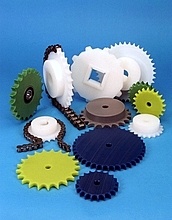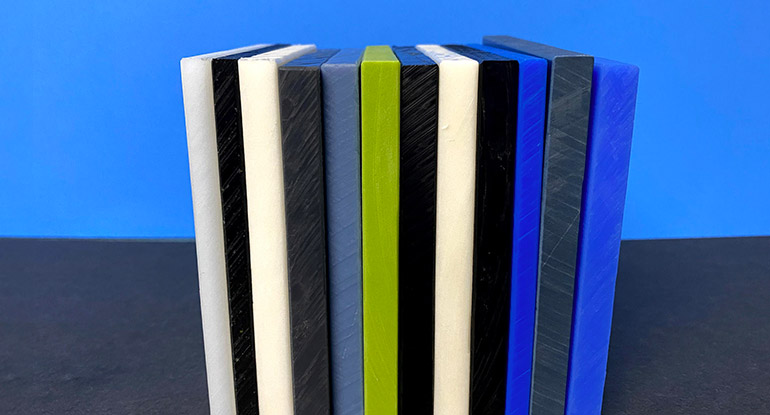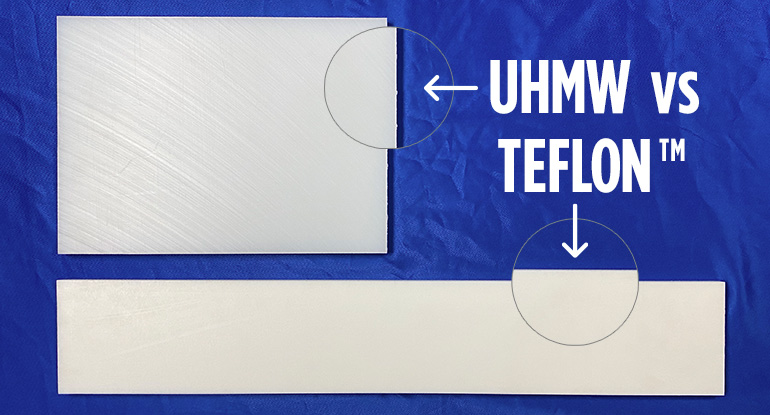UHMW (ultra high molecular weight polyethylene) plastic is the choice material for conveyors and packaging machinery. Its unique properties, ease of fabrication, and low-cost make it the optimal selection for this industry. Its ability to handle abrasion, impact, corrosive cleaning solutions, and wet environments enables UHMW to stand up to extensive wear and tear. Additionally, its dampening properties reduce conveyor noise and vibration. Made in large sheets for big or long parts, UHMW machines easily and can be extruded into complex profiles with thick or thin cross-sections. All these attributes make UHMW a great option for machine builders and maintenance personnel that are concerned with price, extending the life of initial installations, and repairs.
Which UHMW Properties Are Best for You?
Jul 23, 2021 10:12:10 AM / by Slideways, Inc. posted in uhmw, conveyor systems, high-temp, temperature stable, heat resistant, impact strength
UHMW vs Teflon™ in Packaging Machinery and Conveyor Applications
Apr 2, 2021 1:39:57 PM / by Slideways, Inc. posted in uhmw, conveyor systems, high-temp, temperature stable, heat resistant, impact strength
Slippery Plastic Smackdown!
Slideways frequently fields quote requests for parts made of Teflon™, the brand name for PTFE (Polytetrafluoroethylene). Once learning more about the application, we usually determine a UHMW (ultra-high molecular weight polyethylene) part is needed. Teflon has a place in packaging machinery, but it is not the go-to material until some specific operating conditions are met.
Selecting the Right Plastic Material: Impact Strength
Oct 25, 2015 10:49:00 AM / by Slideways, Inc. posted in plastic, impact strength, plastic supplier
 Unlike metals or ceramics, plastics are viscoelastic materials – that is, they respond to stress as if they’re a combination of a viscous fluid and a plastic solid. In other words, while plastics have solid-related characteristics such as stability of form, strength — and, yes, elasticity — they also possess fluid-like properties such as flow, which can be affected by temperature, rate, and time as well as the amount of loading.
Unlike metals or ceramics, plastics are viscoelastic materials – that is, they respond to stress as if they’re a combination of a viscous fluid and a plastic solid. In other words, while plastics have solid-related characteristics such as stability of form, strength — and, yes, elasticity — they also possess fluid-like properties such as flow, which can be affected by temperature, rate, and time as well as the amount of loading.




